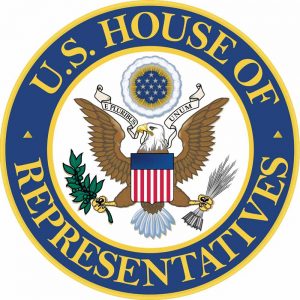 WASHINGTON, D.C, — U.S. Rep. Ryan Costello (R-6), Patrick Meehan (R-7), Suzanne Bonamici (D-OR), and Seth Moulton (D-MA) have introduced the SIMPLE Act, legislation to reduce administrative burdens on struggling student loan borrowers.
WASHINGTON, D.C, — U.S. Rep. Ryan Costello (R-6), Patrick Meehan (R-7), Suzanne Bonamici (D-OR), and Seth Moulton (D-MA) have introduced the SIMPLE Act, legislation to reduce administrative burdens on struggling student loan borrowers.
The legislation allows vulnerable borrowers to automatically enroll in affordable income-driven loan repayment plans, and it removes burdensome paperwork requirements for totally and permanently disabled borrowers whose loans are discharged. The Streamlining Income-driven, Manageable Payments on Loans for Education (SIMPLE) Act will also help borrowers keep payments affordable by automating the annual process of updating borrowers’ income information while enrolled in income-driven repayment plans. U.S. Sen. Ron Wyden plans to (D-OR) introduce similar legislation in the Senate.
Last year, more than one million borrowers defaulted on their student loans. Overall, more than eight million borrowers are in default, and many more are behind on payments. These borrowers are often vulnerable, and many would qualify for lower payments in an income-driven repayment plan. Unfortunately, navigating the enrollment process for an income-driven repayment plan and continuing to submit annual documentation to qualify for affordable payments can be difficult. The SIMPLE Act helps more borrowers participate in income-driven repayment plans.
“Even before graduation, many students face substantial student loan debt that can complicate opportunities and investing in their own future,” Costello said in a statement. “This legislation is a bipartisan effort to assist students in handling their loan burden. By auto-enrolling certain borrowers into lower monthly payment plans, students can decrease their risk of missing payments and being placed into higher-cost plans.”
“Paying back thousands of dollars in student loans after graduation is tough enough without having to navigate a maze of paperwork and red tape,” Meehan said. “Various repayment options and schedules can be confusing for graduates and their families, and missed deadlines or poor choices could put them at risk of inadvertent default. This legislation makes shouldering – and eventually lifting – the burden of debt easier for at-risk Americans and their families.”
“Many people struggle to manage student loan payments when they have competing expenses like housing and child care, said Rep. Suzanne Bonamici (D-OR), Vice Ranking Member of the House Education Committee. “Fortunately there are repayment plans based on income that can help make payments affordable and protect people from financial turmoil. Our bipartisan, commonsense SIMPLE Act will protect many people from default by making these plans easier to access and by eliminating unnecessary paperwork requirements. Importantly, this legislation will bring relief to some of the most vulnerable student loan borrowers, those whose loans have been discharged because of total and permanent disability. The SIMPLE Act is one important step toward reducing the burden of student debt that is holding back so many people in our country.”
“The SIMPLE Act will eliminate burdensome paperwork and automatically connect struggling borrowers with the federal help already available to them,” said Rep. Seth Moulton (D-MA). “One group of individuals this will help are those living with ALS. ALS is a cruel and unforgiving disease, and it’s vital that we provide the best possible care for people living with it. I’m one of the millions of people inspired by my friend, Pete Frates. I was appalled to learn that Pete was still obligated to pay student loans because of a lack of communication between agencies. This is an example of bureaucracy at its worst. The last thing someone living with ALS should have to worry about is dealing with additional financial burdens. We must fix this government inefficiency for Pete and everyone else living with ALS.”
The SIMPLE Act allows at-risk borrowers to make more informed decisions about which repayment plans are right for them, and it automatically connects these borrowers with income-driven repayment plans before they default. Additionally, the SIMPLE Act provides for automatic recertification of borrowers’ incomes while they are enrolled in income-driven repayment plans to prevent unexpected increases in loan payments. Finally, the SIMPLE Act automates the income-monitoring process for borrowers whose loans are discharged because of disability.
You can read a summary of the SIMPLE Act here and the full text of the bill here.
The SIMPLE Act is supported by The Institute for College Access and Success (TICAS); Student Veterans of America (SVA); National Consumer Law Center (NCLC), on behalf of its low-income clients; Third Way; Student Debt Crisis; American Federation of Teachers (AFT); Center for Law and Social Policy (CLASP); National Education Association (NEA); United Negro College Fund (UNCF); Pennsylvania Higher Education Assistance Agency (PHEAA); AccessLex Institute; Consumers Union; Young Invincibles; Center for Responsible Lending (CRL); Center for American Progress (CAP); American Association of University Women (AAUW); Association of Community College Trustees (ACCT); Pennsylvania Association of Student Financial Aid Administrators (PASFAA); National Association for College Admission Counseling (NACAC); The Education Trust; Higher Education Loan Coalition (HELC); Veterans Education Success (VES); Consumer Action; American Association of Community Colleges (AACC); American Legion; Service Employees International Union (SEIU); and National Association of Student Financial Aid Administrators (NASFAA).






